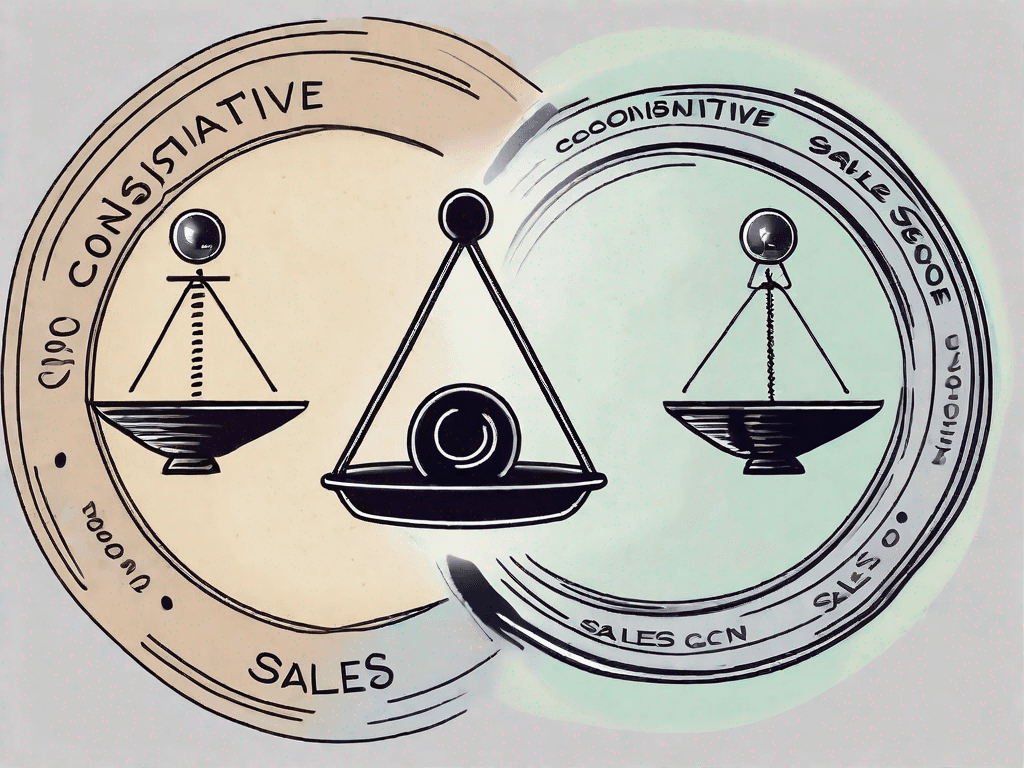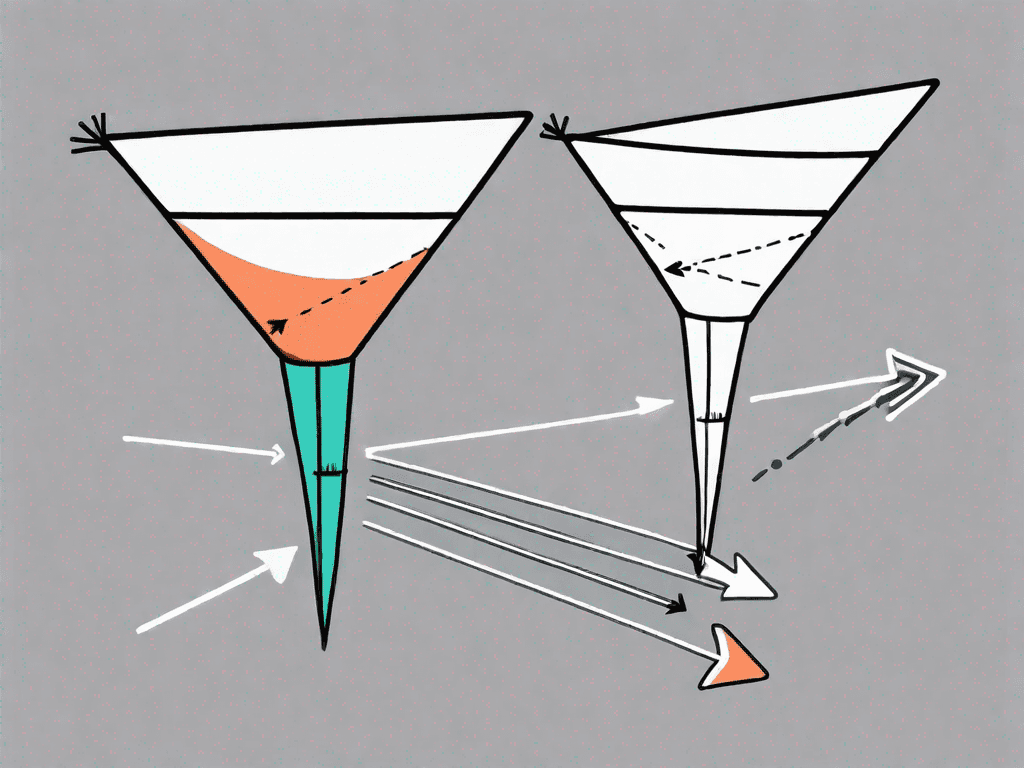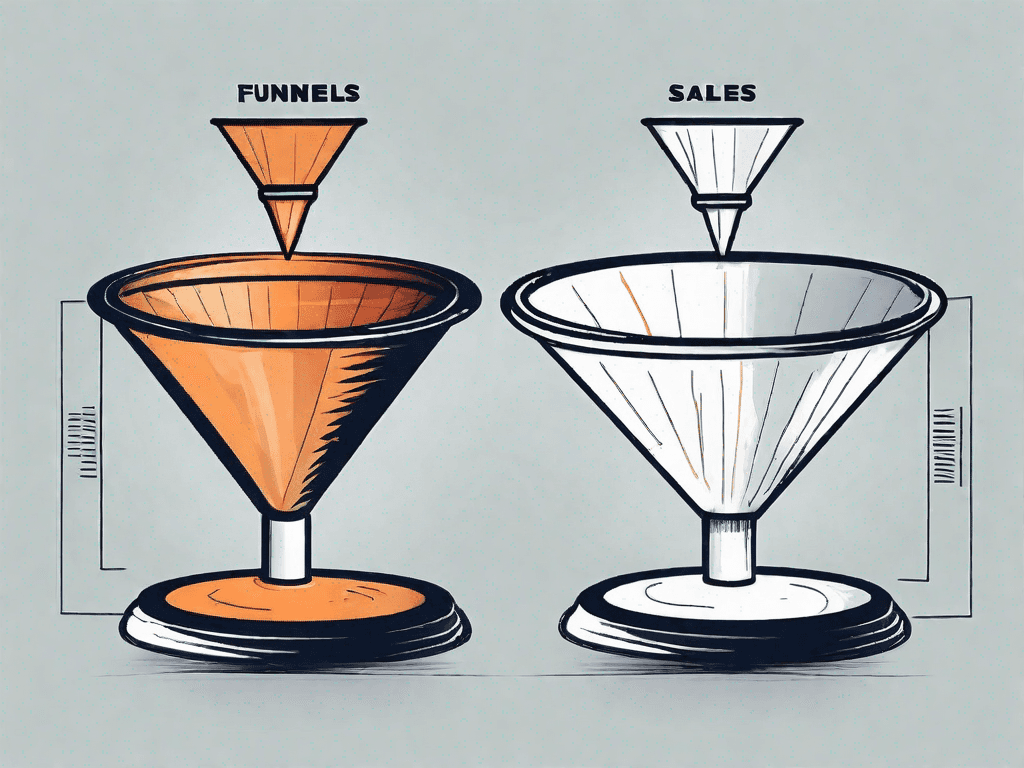
Sales Manager vs Sales Operations Manager: What's the Difference?
Sales Manager vs Sales Operations Manager: What's the Difference?
1) Defining Sales Manager and Sales Operations Manager
1.1 - What is a Sales Manager?
A sales manager is responsible for leading and supervising a team of sales representatives to achieve sales targets and drive revenue growth. They develop sales strategies, set sales goals, and provide guidance and support to their team members. Sales managers also analyze market trends, identify potential customer needs, and ensure effective sales processes and customer relationships.

In addition to these core responsibilities, sales managers play a crucial role in motivating and inspiring their team members. They create a positive and high-performing sales culture by fostering teamwork, recognizing individual achievements, and providing ongoing training and development opportunities. By nurturing a collaborative and competitive environment, sales managers empower their team to reach their full potential and exceed sales targets.
Furthermore, sales managers are often involved in the recruitment and selection process of sales representatives. They identify the skills and qualities required for success in the sales role, conduct interviews, and make hiring decisions. This ensures that the sales team is composed of talented individuals who are aligned with the company's values and goals.
1.2 - What is a Sales Operations Manager?
A sales operations manager focuses on managing and optimizing the sales operations and processes within an organization. They work closely with sales management to develop and implement efficient sales strategies and procedures. Sales operations managers are responsible for analyzing data, monitoring sales performance, and identifying areas for improvement. They also manage sales tools and systems, such as CRM software, to streamline sales activities and enhance productivity.

Moreover, sales operations managers are involved in the planning and forecasting of sales targets and budgets. They collaborate with finance and other departments to ensure that sales goals are aligned with the overall business objectives. By conducting thorough market research and analysis, sales operations managers provide valuable insights and recommendations to drive sales growth and maximize profitability.
In addition to their analytical and strategic responsibilities, sales operations managers also focus on maintaining strong relationships with key stakeholders. They liaise with cross-functional teams, such as marketing, finance, and customer service, to ensure seamless coordination and alignment of sales efforts. By fostering effective communication and collaboration, sales operations managers contribute to a cohesive and customer-centric approach to sales.
Furthermore, sales operations managers stay up-to-date with the latest industry trends and technological advancements. They continuously evaluate and implement new sales tools and technologies to enhance efficiency and effectiveness. By leveraging data analytics, automation, and artificial intelligence, sales operations managers drive innovation and enable sales teams to stay ahead of the competition.
2) What's the difference between a Sales Manager and a Sales Operations Manager?

While both roles contribute to the success of an organization's sales function, there are key differences between sales managers and sales operations managers.
A sales manager primarily focuses on leading and mentoring a sales team to achieve revenue targets. They are responsible for setting sales goals, providing coaching and guidance, and driving sales performance. Sales managers play a crucial role in building relationships with clients and ensuring customer satisfaction.
Additionally, sales managers are often involved in the recruitment and training of sales representatives. They assess the skills and capabilities of potential hires, conduct interviews, and provide onboarding and ongoing training to ensure that the sales team is equipped with the necessary knowledge and skills to succeed.
Furthermore, sales managers are responsible for developing and implementing sales strategies. They analyze market trends, competitor activities, and customer preferences to identify opportunities for growth. By understanding the market landscape, sales managers can make informed decisions about pricing, product positioning, and target markets.
On the other hand, a sales operations manager focuses on optimizing the sales operations and processes. They analyze data and metrics to identify areas for improvement and implement strategies to enhance sales efficiency. Sales operations managers work closely with sales managers to develop effective sales strategies and provide insights to drive revenue growth.
In addition to analyzing data, sales operations managers are responsible for managing sales tools and technologies. They evaluate and implement CRM systems, sales automation software, and other tools that can streamline sales processes and improve productivity. By leveraging technology, sales operations managers can enhance data accuracy, reporting capabilities, and overall sales effectiveness.
Moreover, sales operations managers play a crucial role in sales forecasting and pipeline management. They collaborate with sales managers and finance teams to develop accurate sales forecasts, monitor pipeline health, and identify potential risks or opportunities. By having a clear understanding of the sales pipeline, sales operations managers can provide valuable insights to support strategic decision-making.
Furthermore, sales operations managers often collaborate with other departments, such as marketing and finance, to align sales strategies with overall business objectives. They participate in cross-functional meetings, provide input on pricing and promotions, and ensure that sales activities are aligned with the company's broader goals and strategies.
In summary, while both sales managers and sales operations managers contribute to the success of an organization's sales function, their roles and responsibilities differ. Sales managers focus on leading and mentoring the sales team, setting goals, and driving performance, while sales operations managers optimize sales processes, analyze data, and provide insights to enhance sales efficiency. Together, these roles work in tandem to achieve revenue growth and ensure the organization's sales function operates smoothly.
3) Examples of the Difference between a Sales Manager and a Sales Operations Manager
2.1 - Example in a Startup Context
In a startup context, a sales manager may focus on building a high-performing sales team and driving sales growth. They would be responsible for hiring and training sales representatives, setting sales targets, and developing sales strategies. On the other hand, a sales operations manager in a startup would focus on implementing sales processes, analyzing sales data, and optimizing the sales infrastructure to support the sales team's efforts.
2.2 - Example in a Consulting Context
In a consulting context, a sales manager in a consulting firm may be responsible for managing client relationships, identifying business opportunities, and closing deals. They would work closely with consultants to understand client needs and align sales strategies accordingly. In contrast, a sales operations manager in a consulting firm would focus on managing the sales pipeline, optimizing sales processes, and ensuring efficient resource allocation to maximize revenue generation.
2.3 - Example in a Digital Marketing Agency Context
In a digital marketing agency context, a sales manager would focus on acquiring new clients, pitching services, and managing client accounts. They would collaborate with internal teams to develop tailored marketing solutions for clients. A sales operations manager in a digital marketing agency would focus on implementing CRM systems, analyzing marketing data, and streamlining lead generation processes to ensure efficient sales operations and support the sales team's efforts.
2.4 - Example with Analogies
To provide a clearer understanding, let's use analogies to differentiate between a sales manager and a sales operations manager. Think of a sales manager as a coach who guides and motivates their team members to score goals. Their main focus is to ensure the team's success by setting strategies, providing support, and monitoring performance.
In contrast, a sales operations manager can be compared to a referee or umpire who ensures that the game is played according to the rules and efficiently. They optimize the sales processes, analyze data to spot inefficiencies or bottlenecks, and facilitate the smooth functioning of the sales operations.
In summary, a sales manager takes charge of leading the team and achieving sales targets through coaching and relationship-building, while a sales operations manager focuses on optimizing sales operations and processes to enhance efficiency and productivity.


















































































































































